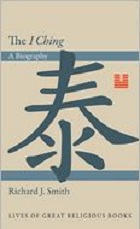
![]()
By Richard J. Smith
Princeton University Press, $24.95, 288 pages
The vast world of ancestral and other spirits in Bronze Age China is implicit in the divinations, sacrifices and prayers that suffice the basic text of the Changes.
This work of learned and fast-tracked scholarship traces shifts in Chinese history through the leading interpretations of the ancient text The I Ching, known as the Book of Changes. The book has been taken, at various times and for different political intentions, as a book of philosophy, of divination and prophecy, of assimilation, of ethical wisdom and especially one of moral rectitude. Smith demonstrates the wonderful diversity of Chinese culture by a rigorous genealogy; what was thought when this book was written and what that stance means now for that society. The book was read in varied ways as the cultural and political forces adapted it to their beliefs.
Though it suffers from a lack of narrative push, The I Ching: A Biography’s virtue is sleekness. Smith stakes no value in his reading. With no emotion to cloud up his discussion, he propels an otherwise academic exercise into an interesting, if only informational, volume. He ably fulfills his goal: to show that the ‘philosophical eclecticism’ of the book reflects the complexity and denseness of Chinese people.
Reviewed by Neil Liss
[amazon asin=0691145091&text=Buy On Amazon&template=carousel]
